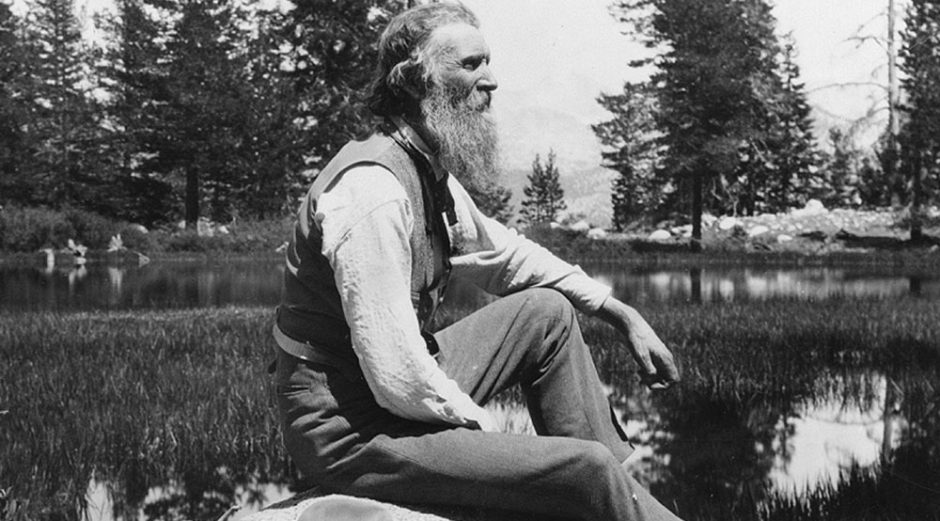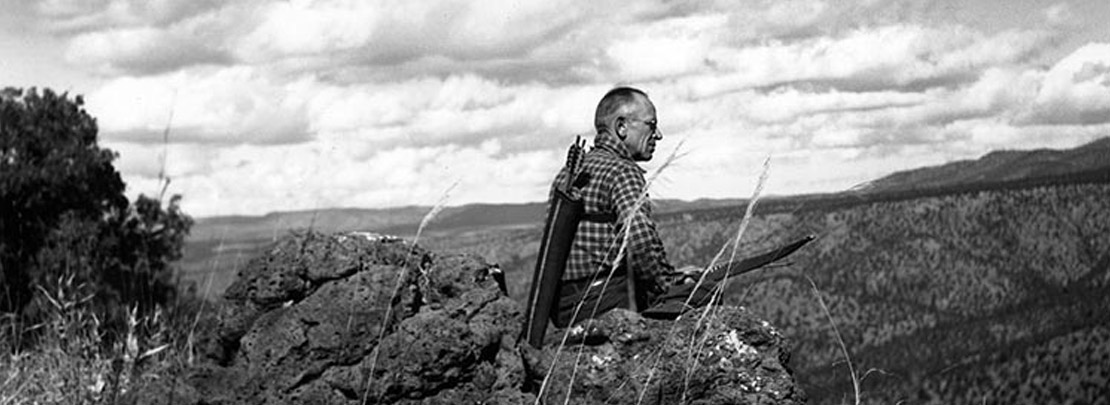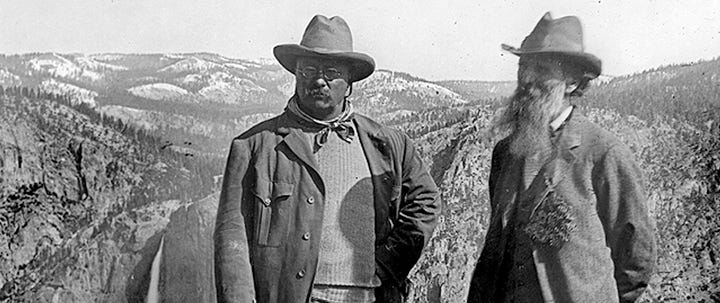Most Christian theologies assume God is essentially timeless. By ‘essentially timeless,’ I mean they assume God does not experience in relationship with others moment by moment. Many assume God ‘sees’ history – beginning to end – from an eternal now, without engaging in giving and receiving relations with creation.
Scholars offer various theories for how the timeless God acts. But each theory shares the view God is fundamentally nontemporal. The timeless God is ‘outside,’ ‘beyond,’ or ‘above’ time.
Open and relational theologies believe God experiences time sequentially — moment by moment — in relation with others. God’s experience is in process, we might say. God experienced the actual past, experiences in the present, and faces an open, yet-to-be-experienced future. God’s experience is timefull not timeless.
The idea God everlastingly experiences time makes a difference for a Christian doctrine of providence. The implications of thinking God experiences moment by moment are vast. Exploring them all is not possible in this essay.
I will, however, point to four general characteristics of God-in-process views. I’ll explain what these characteristics typically mean for accounts of providence. I’ll address other characteristics in a future essay.
Open and relational theologies make better sense of the biblical witness, personal experiences, and the world science explores. They also make better sense of the idea love is God’s providential mode of operation.
Open and relational theologies vary. No set of ideas is embraced by every theologian who accepts the label. But family resemblances can be identified. These resemblances shape this view of providence that says God is timefull not timeless.
An Omniscient God Experiences
Open and relational views of providence take the reality of time seriously. Not only is existence fundamentally in process, but God also experiences the process of time. The living and loving Creator everlastingly relates with others moment by moment.
God-in-process views say God faces an undetermined future. That’s the meaning of ‘open’ in open and relational theologies. An undetermined future implies God cannot with certainty know now all that will occur. Exhaustive divine foreknowledge would only be possible if the future were settled, fixed, and complete.
Lack of foreknowledge, however, doesn’t mean God’s knowledge is limited. The future does not yet exist to be known. It does not provide information anyone could know. The future is inherently unknowable because not yet actual. So God should not be thought limited because not knowing what is inherently unknowable.
Open and relational theologians believe God is omniscient, however. God knows all that’s knowable. God knows the completed past, the unfolding present, and possibilities for the future.
This view of God’s omniscience makes better sense of how most Christians relate to God. Petitionary prayer makes better sense, for instance, if the future is open and not yet decided. Why ask God to do something if the future is already settled? To put it another way, petitionary prayer makes little sense if God is timelessly unresponsive.
God in One Sense Affected and Changing;
in Another Sense Unaffected and Unchanging
Many of the most influential Christian theologies say God is unaffected by creation. God is ‘impassible,’ to use the ancient language. God is unmoved.
By contrast, open and relational theologies say creatures affect God, because God is passible. Many today use the word “relational” to talk about how others influence God. This view fits biblical accounts that portray God responding to creation and feeling emotions (e.g., anger, sadness, joy) in light of what creatures do.
God undergoes changes in experience. Divine experience is mutable, dynamic, or interactive. God may even change plans – repent – in light of what creatures do. In fact, more than forty biblical passages say God does just that: repents. The idea that God interacts with creation also fits well with the covenants reported in Christian scripture.
Most open and relational thinkers make a distinction between God’s changing experience and unchanging nature. Some call this distinction divine “dipolarity.” I call it God’s “essence/experience binate.” The shared point is that God’s essence is impassible and immutable as eternally constant. But God’s experience is passible and mutable. The phrase ‘God in process’ refers to ongoing divine experiences not the unchanging divine essence.
We best understand biblical statements about an unchanging God (e.g., ‘I am the Lord who does not change’) in light of the immutable divine essence. But we understand passages describing God repenting, responding, expressing emotion, feeling compassion, or making covenants in light of God’s mutable experience.
Genuine but Limited Freedom
Some theologies deny that creatures have genuine (libertarian) freedom. Theologies that adopt divine determinism explicitly reject creaturely freedom. They assume a sovereign God controls all things. Other theologies say humans are free, and yet somehow God simultaneously controls them. This called “compatiblism.” Open and relational theologies say both determinism and compatibilism make no sense.
Open and relational theologies affirm that humans express genuine but limited freedom. Various biological, environmental, historical, epistemological, and other factors limit creatures. But humans freely choose in each moment among limited options arising from and suitable to their circumstances. We are not entirely controlled by God, atoms, genes, neurons, or any environmental factors. But we are influenced by them.
Some open and relational theologies assume other creatures express genuine but limited freedom. Still others speculate that less complex creatures have agency, self-organization, or spontaneity. Some embrace panpsychism, which affirms responsiveness in even the least complex entities of existence. But open and relational theologies differ among themselves about how far down the complexity scale creaturely agency goes.
Open and relational theologies assume God is not free to do some things. In addition to being unable to do the illogical, the divine nature prevents God from acting in other ways. God is not free to stop existing, for instance, because by nature God exists necessarily. [Nor is] God free to stop loving, cannot sin, etc., because God cannot contradict Godself.
Some open and relational theologies argue God’s freedom in relation to creation became constrained once God created the universe
ex nihilo. Others say God’s freedom has always been constrained, because God has always been creating and relating to uncontrollable creatures. In either case, God has genuine but limited freedom. Whatever one means by ‘divine sovereignty,’ therefore, divine power must be understood in light of God’s nature, metaphysical laws, and/or what is logical.
God is not Culpable for Evil
Open and relational theologies think about God’s power differently than timeless God theologies. Because God does not predetermine or foreknow, for instance, God neither pre-causes nor foresees evil.
Process theology is best known for arguing God’s power is inherently limited. Some process theologians say these limitations come from the God-world relationship; others say from God’s relation to creativity; others say metaphysical laws constrain God. The strength of such claims is hard to overemphasize: the God process theology describes cannot coerce and is therefore not culpable for failing to prevent genuine evil. God cannot cause evil nor singlehandedly prevent it!
Other open and relational theologies say God voluntarily self-limits. This means God ‘allows’ or ‘permits’ evil. Some believe God made a promise at creation never to intervene. Others say once creation exists, God’s power becomes limited.
Such claims partly answer questions of evil. They reject the idea evil is pre-decided or foreknown. But divine self-limitation theologies are not as strong as process theology when it comes to solving the problem of evil. Survivors wonder why the voluntarily self-limited God doesn’t occasionally un-self-limit, in the name of love, to prevent their suffering.
God-in-process views vary in their views about demons and a devil. Some reject the idea such ontological beings exist but acknowledge demonic non-agential principalities and powers. Others embrace demons and a devil as ontological beings. These theologies blame at least some disorder, tragedy, and evil to the activity of destructive agents.
Conclusion
In this essay, I’ve laid out four ways theologies of providence that assume God is timefull differ from theologies assuming God is timeless. Much more could be said, of course, and I’ll write a second essay laying out other ways.
It matters to think God experiences time rather than standing outside it.
* * * * * * * * * *
A TimeFull God Creates & Acts
with an End in Mind
by Thomas Jay Oord
January 30th, 2020
Many people think a timeless God created the universe and is its eschatological hope. By contrast, I think we make better sense of creation and eschatology if we think God is timefull rather than timeless.
In a previous essay, I identified four dimensions of an open and relational — “God-in-process” — view of providence. Here’s a link. In this essay, I continue my previous train of thought and address the beginning and end from a timefull God theological perspective.
God Continually Creates
Open and relational theologies affirm God is Creator. God created in the past and creates in the present. God continually creates (creatio continua). Creation depends moment-by-moment upon divine creativity.
The idea God continually creates fits nicely with the general theory of evolution. The vast majority of contemporary biologists say new species emerged slowly over a long period, thanks to various forces and factors.
Most open and relational theologies agree with the general theory of evolution. But they claim God acts in the evolutionary process. A timefull God creates through evolution (and other forces).
God also empowers creatures to co-create alongside their Creator. This view fits nicely with biblical claims about God calling creation to create (Genesis 1) and contemporary scientific views that speak of the emergence of new species. God’s creating is noncoercive. Random genetic mutations, natural selection, creaturely self-organization, evolutionary dead ends, and natural evils are compatible with God’s uncontrolling, creative love.
Creation out of Nothing?
Open and relational theologies differ on whether God ever creates from a ‘blank slate,’ i.e., out of nothing (creatio ex nihilo). Although the view isn’t explicitly stated in Scripture, some affirm creation from nothing for metaphysical reasons. Creatio ex nihilo implies that creation depends upon God. It also implies that God differs from creation in a crucial way.
Other God-in-process theologies say God never faced a completely blank slate. They reject creatio ex nihilo, and they think God everlastingly creates. God differs from creation in some ways but not others.
Most who accept creatio ex nihilo and reject it affirm with contemporary science that this universe began with a big bang roughly 13.8 billion years ago. And they affirm with Scripture that God is Creator. (For more on the diverse views, see a book of scholarly essay I edited: Theologies of Creation: Creatio ex Nihilo and Its New Rivals.)
God-in-process views offer a methodological advantage for thinking about theology and science. These views says efforts to understand existence require both scientific and theological contributions. Any scientific theory claiming to explain reality fully without reference to God is false. Any theology claiming to explain reality fully without reference to nature is false.
We need both science and theology to make sense of life.
God Has Plans but No Blueprint
Most theologies assume God’s providence follows a foreordained and foreknown plan. The God who is outside time predetermined creation’s current events and future outcomes. Or this God foreknows – in some mysterious way – precisely how history plays out.
From a timeless God perspective, divine providence is like a detailed blueprint portraying all events in advance.
Open and relational theologies deny that God foreordains or foreknows exhaustively. The future is open, and the present becomes what a timefull God and creation decide. An uncontrolling God cannot guarantee or foreknow all outcomes.
The God of open and relational theology has plans and desires, however. God leads creation toward fulfilling them. This is not the God of deism watching from a distance. Nor is this an aloof and detached deity.
God makes plans for love to win. And God empowers creatures to cooperate in fulfilling those plans. God works in each situation to call, persuade, or command creatures to choose well-being.
God-in-process models might think of providence like an improvisational play. The play has a Director and general direction. But creaturely actors play essential roles in deciding how the plot unfolds.
God-in-process models might also think of providence like a jazz session. Each musician contributes, and there’s a general movement toward the possibility of beautiful art. But the artists determine together how the music develops.
These models might also think of providence like a family. A perfectly loving Parent nurtures and instructs children. This Parent directs the whole family toward well-being. But the family’s health depends on the decisions of all members, not just the Parent.
God Acts with the End in Mind
Open and relational theologies embrace diverse eschatologies. Their views on the end contrast those theologies that assume God is timeless. Divine providence does not proceed according to a preset eschatological scheme.
Open and relational theologies describe a God motivated by persuasive love. God imagines a better future and calls creation to embrace the best in each moment, depending on what’s possible. (For what this means in terms of heaven, hell, or annihilation, see my “Relentless Love” view of the afterlife.)
Those who embrace love cooperate with God’s work to redeem all creation. Their cooperation promotes overall well-being. Those that fail to cooperate reap the natural negative consequences that come from saying no to the well-being God offers. Their lack of cooperation negatively affects others too.
If God foreordained and foreknew all that will occur, the future must already be settled, complete, and fixed. If the future is complete, creaturely decisions cannot be made freely in relation to possible futures. There is only one way things can play out.
Without genuine creaturely freedom, it’s hard to imagine how creatures are morally or socially responsible. Without social and moral responsibility, it’s hard to see how creatures ultimately matter. God-outside-of-time views are difficult to reconcile with our the deep intuition that what happens in our own lives makes an ultimate difference.
Open and relational theologies say creatures make a real difference to how history unfolds. Our lives count.
Conclusion
How one believes God relates with time matters. Timefull theologies offer plausible views of how God created and creates. They also offer hopeful views of what the future can be.








:max_bytes(150000):strip_icc():format(webp)/GettyImages-933712046-5bb39fb3c9e77c002603ebe2.jpg)

:max_bytes(150000):strip_icc():format(webp)/Rachel-carson-GettyImages-577685719-58b8c22b3df78c353c1e0c8e.jpg)


:max_bytes(150000):strip_icc():format(webp)/Julia-Hill-GettyImages-539723776-58b961705f9b58af5c449137.jpg)
:max_bytes(150000):strip_icc():format(webp)/Henry-David-Thoreau-GettyImages-AB30213-58b961ea3df78c353cd86ebb.jpg)


:max_bytes(150000):strip_icc():format(webp)/Chico-Mendes-GettyImages-530239202-58b966753df78c353cda7158.jpg)
:max_bytes(150000):strip_icc():format(webp)/Wangari-Maathai-GettyImages-525237988-58b966aa5f9b58af5c469d35.jpg)







![Whitehead Word Book: A Glossary with Alphabetical Index to Technical Terms in Process and Reality (Toward Ecological Civilization Book 8) by [Cobb Jr, John B]](https://images-na.ssl-images-amazon.com/images/I/411paEaBBDL.jpg)















